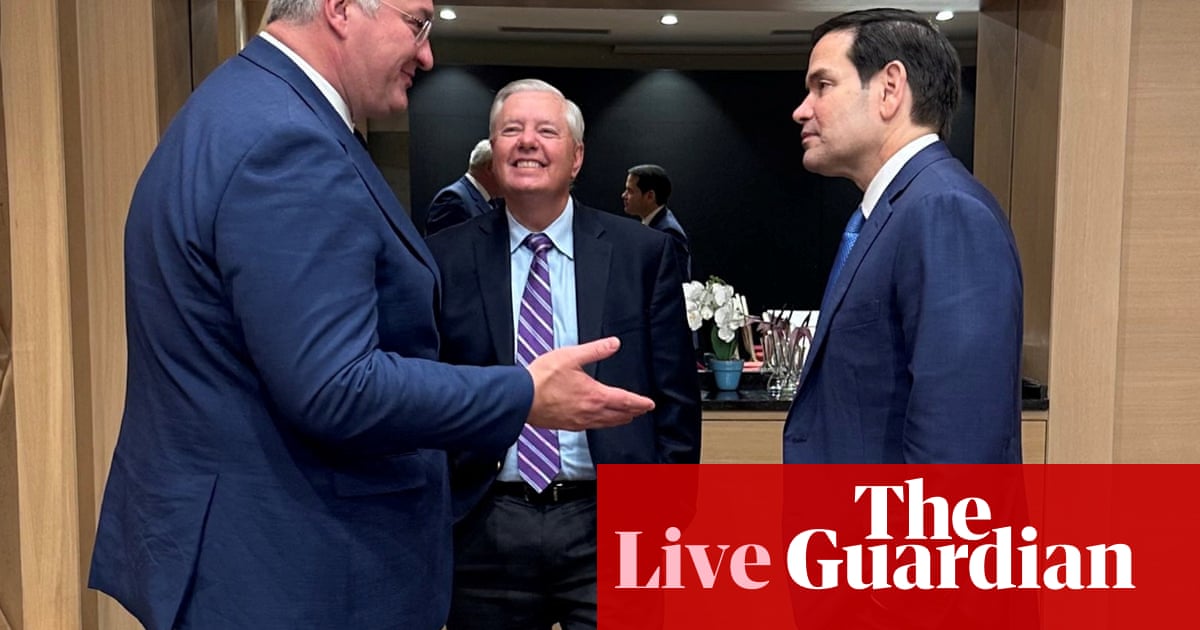Ukraine and Russia are set to hold their first direct talks since the start of Russia’s 2022 invasion.
Putin proposed the talks in a Kremlin address hours after Kyiv and European countries urged Moscow to agree to a full and unconditional 30-day ceasefire starting Monday. After Putin’s address, Zelensky said he would be willing to meet Putin inTurkey.
But the Kremlin late on Wednesday said Putin would not be attending and that instead its delegation would be led by hawkish former culture minister Vladimir Medinsky, who took part in failed 2022 talks. The Kremlin had for several days declined to say who would go to Istanbul.
Brazil’s President Luiz Inacio Lula da Silva, who has been critical of western support for Ukraine, urged Putin to attend the negotiations.
US President Donald Trump had said he “believes both leaders will be there” and floated the idea that he might join the talks too.
Nato member Turkey has sought to maintain good relations with both of its Black Sea neighbours since the Russian invasion began and has twice hosted talks on the war. Representatives for Moscow and Kyiv discussed an outline to end the war in Istanbul in March 2022.
But those talks broke down following Russia’s retreat from the Kyiv suburb of Bucha, where hundreds of civilians were found dead following a month-long occupation by Russian forces.
Contact between the warring sides has been limited since and mainly dedicated to humanitarian issues such as prisoner exchanges and the repatriation of soldiers’ remains.
Russia insists the talks address what it calls the “root causes” of the conflict, including the “denazification” and demilitarisation of Ukraine, two vague terms Moscow has used to justify the invasion. It has also repeated that Ukraine must cede its territory occupied by Russian troops.
Kyiv said it won’t recognise its territories as Russian – though Zelenskyy has acknowledged that Ukraine might only get them back through diplomatic means.
The two warring parties are struggling to agree even on a ceasefire.
Ukraine agreed last month to the US proposal of an unconditional ceasefire, which Zelenskyy said was a prerequisite for negotiations. But Putin, whose troops have the momentum in parts of the frontline, rejected the proposal.
Zelenskyy said in Kyiv that the west should impose massive sanctions if Putin skips the meeting. He also said he would decide on Kyiv’s next “steps” depending on who Russia sends.
French President Emmanuel Macron and German Chancellor Friedrich Merz have warned of new sweeping sanctions against Russia if no substantial progress is reached in Turkey this week.
The EU on Wednesday approved a fresh package of sanctions on Russia, which is already subject to over 20,000 restrictive measures, clamping down on its “shadow” oil fleet.
In March, Trump threatened to impose tariffs on the vital Russian oil industry as the country’s economy is strained by high military expenditures for the war. US Senator Lindsay Graham had advocated a 500% tariff on imports from countries that continue buying Russian oil, gas and uranium.
Hello and welcome to our continuing coverage of the war inUkraine.
Ukraine and Russia are set to go into their first direct talks in more than three years in Istanbul, but PresidentVladimir Putinis not included on the list of attendees.
Ukraine’s president,Volodymyr Zelenskyy, had challenged Putin to meet him in person in Istanbul, but the Kremlin has said he will not be taking him up on the offer.
Putin had proposed holding the talks in Istanbul as a counter-offer after Ukraine and European nations last week called for a 30-day unconditional ceasefire. Zelenskyy agreed, but said this week that if Putin did not attend himself, it would signal he was not genuinely interested in peace.
Meanwhile Nato ministers including UK foreign secretary David Lammy will meet inTurkeyon Thursday. Britain and its military allies will be working to “step up” their collective security at the gathering in Antalya, Lammy said.
Here’s a summary of the day’s other main events:
Ukraine’s president, Volodymyr Zelenskyy, is due in the Turkish capital, Ankara, on Thursday where he will meet with the Turkish president, Recep Tayyip Erdoğan.
Putin announced on Wednesday that he would send Vladimir Medinsky, a presidential adviser, to lead the Russian delegation. Also included in the delegation are Alexander Fomin, a deputy defence minister; Igor Kostyukov, an intelligence director; and Mikhail Galuzin, a deputy foreign minister.Significantly, Putin’s foreign minister, Sergei Lavrov, and the Kremlin foreign policy aide Yuri Ushakov, both top negotiators for the Kremlin, were not named in the Russian delegation.
TheUS secretary of state, Marco Rubio, is expected in Istanbul on Fridayto take part in what are the first direct peace talks since failed efforts in the first weeks of the Russian full-scale invasion. Rubio met with Ukraine’s foreign minister, Andriy Sybiga, on Wednesday in Antalya.
Germany’s new chancellor, Friedrich Merz,said on Wednesday that there must not be any settlement in Ukraine in the form of a “dictated peace” from Moscow.Addressing parliament, Merz warned of “militarily created facts against Ukraine’s will”, telling lawmakers it was “of paramount importance that the political west does not allow itself to be divided”.
A Russian missile attack on Wednesday killed three people at an industrial site near the north-eastern Ukrainian city of Sumy, said the regional governor, Oleh Hryhorov.Sumy sits opposite Russia’s Kursk region – a Russian missile attack on the city of Sumy on Palm Sunday killed 35 people.
